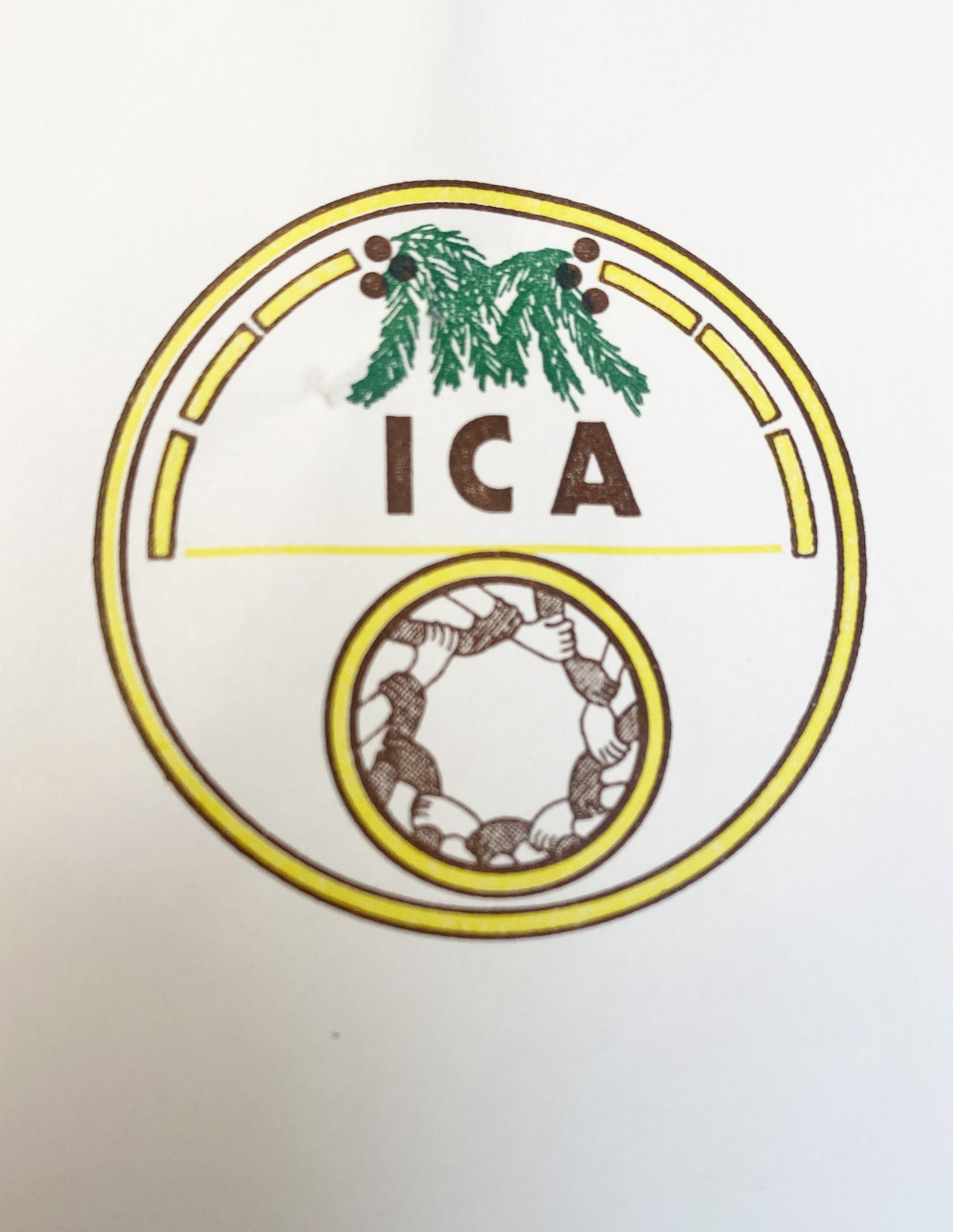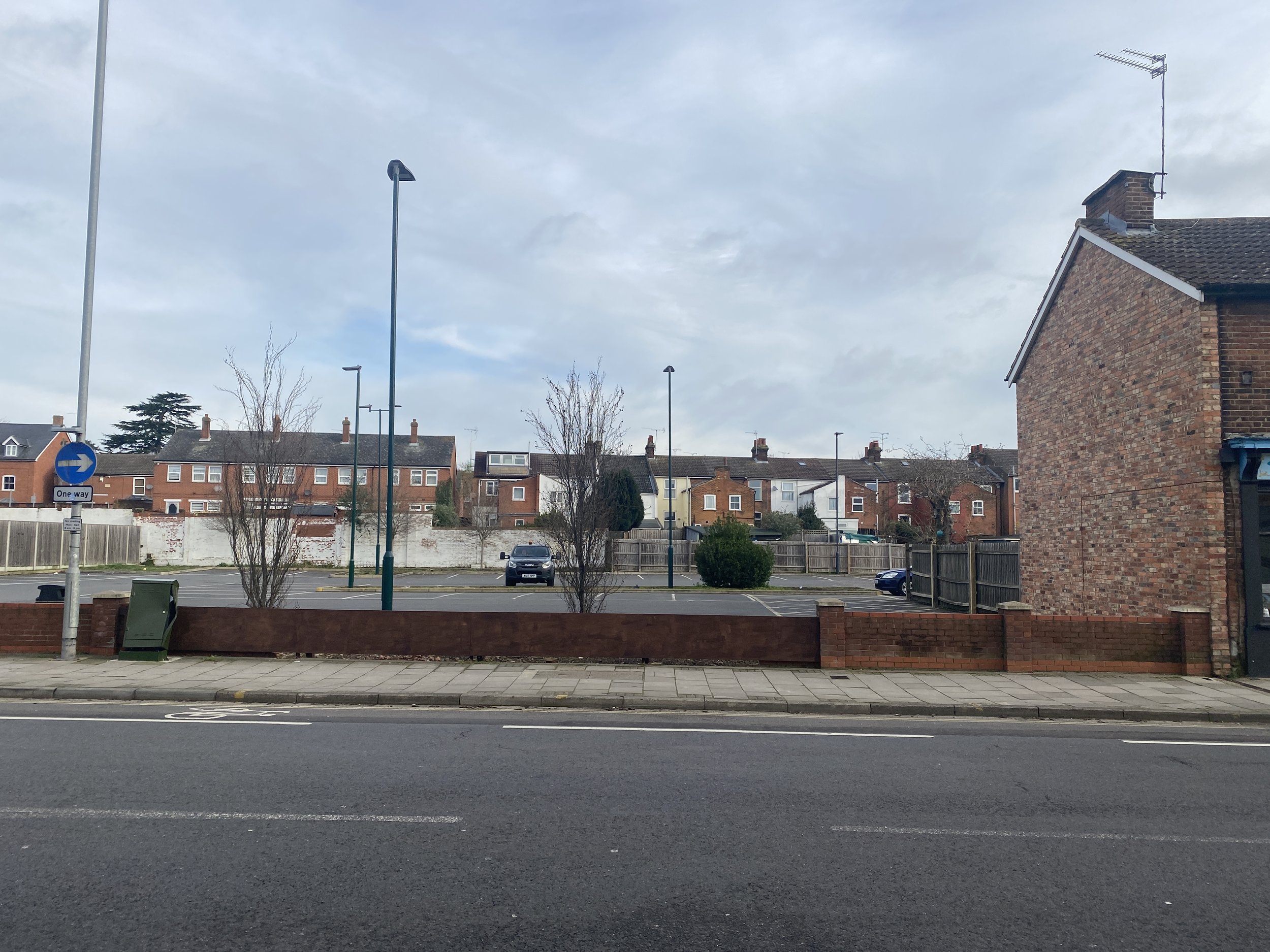YOU DON'T KNOW WHAT YOU'VE GOT 'TIL IT'S GONE
The mayor's car outside the Ipswich Caribbean Association's International Community Centre, c. 1980.
Photo courtesy of Suffolk Archives
The title of this entry is of course a reference to the Joni Mitchell song that so articulately describes what it means to lose something of value. As you will see, the reference to a parking lot in that same song is also pertinent to what follows.
Early March saw SPILL Festival share a call out for a new artist commission, having been awarded funding in the form of a Historic England ‘Everyday Heritage’ grant: https://www.spillfestival.com/artist-callouts
We are seeking artists to create new works and experiences inspired by the history of the Ipswich Caribbean Association building, which formerly stood at 15 Woodbridge Road. I have already written in these notebook entries about how participation and community engagement is new territory for me as an Artistic Director; this project is a further step into this kind of artistic practice.
As I said in an interview with the East Anglian Daily Times, ‘The story of the Ipswich Caribbean Association building is fascinating – of music, food, conversation and people coming together across cultures. It is also a story of loss, with the Woodbridge Road building having been demolished in 2012. With our funding from Historic England, SPILL Festival will commission artists to connect with local communities to activate memories of this space, and also think about their needs for the future. I hope going forward that SPILL Festival can build on this kind of approach, where the input of Ipswich communities through their stories and interests can help us shape what we do.’
The origins of this project are interesting. In early 2023, we did a public call out to get some input for a festival project with French artist Olivier Grossetête who was renowned for building monumental architectural constructions from cardboard boxes. What building, we asked, would the people of Ipswich like to see built as part of this project?
A lot had to be factored in when making this decision, including the structural feasibility as a large-scale object constructed from cardboard boxes (the many suggestions of the Orwell Bridge were apparently a no go for this reason) and the artist’s own interests in the building itself. Ultimately, we landed on a reconstruction of Ipswich’s Wolsey Gate and an imagined depiction of the ultimately unrealised college that was originally to be built around it, but we received a significant number of votes for the Ipswich Caribbean Association building as one they would like to see reconstructed.
In the end, a fun (and sometimes hair rising) time was had by all, building, demolishing and disposing of this 16-metre-tall construction. However, the interest many had expressed in the ICA building stayed with me, planting the seed for a project that is now coming to fruition.
We began our new year with a first meeting of our steering group (who will be leading on the artist selection process) and I soon came to realise what a complex story this is. These initial conversations made it clear that the communities who originally used the ICA still felt its absence as a wound.
The possible sensitivity at play is making me think about my own relationship with the histories and experiences that may come to the fore in this project. My family heritage has its roots in the Caribbean; my mother is a Trinidadian who came to work for the NHS in the 1960s. In 2018, I made a spoken word performance where this part of her biography was explored. My mother was also a musician, a member of La Petite Musicale, a choral group that performed the traditional folk music of Trinidad and its sister island Tobago. In my performance, I recounted my experiences of trying to find copies of La Petite Musicale records with my mother as a member, as well as sharing mum’s memories of making these recordings before emigrating to the UK.
(My mum, by the way, is standing in the second row, fifth from the right.)
In the performance, I tried to find some connection between these three dates, and three occurrences happening over three years:
Trinidadian Independence in 1962
The recording of this record in 1963
The departure of my mother for the United Kingdom in 1964
So there was the fact of a country becoming independent (and the idea of this being this new dawn for the country), alongside the fact of someone leaving that country for this other place - the place that they had just become independent from. In our conversations, we never quite got to the bottom of all this, but I remember my fascination with my mother telling me how, as a younger woman, she would describe the UK as ‘the mother country’. However, I recognise this alone does not give me an inherent understanding of the Ipswich Caribbean Association, and the specificity of its stories in the context of this town and Suffolk.
Fast forward to February 2024, and I am sitting in The Hold, the home of Suffolk Archives in Ipswich. I am watching a DVD containing a series of interviews generated by the Ipswich Caribbean Experience (ICE), a 2005 project that recorded and preserved the experiences of those who migrated from the Caribbean to Ipswich during the 1950s and 60s. It is interesting to hear that same phrase my mum would use - ‘the mother country’ - being used by interviewees from other Caribbean Islands: Jamaica, Barbados, St Kitts, Nevis. As I hear the different cadences in speech, and differing descriptions of cuisine from differing islands, I am reminded of the need to keep thinking of that word ‘community’ as a plural.
Turning my attention to the fragments of papers, leaflets and documents in The Hold’s archives, I am instinctively drawn to the minutiae. I find myself thumbing through thin sheathes of typewritten paper that mark out a more mundane history of the Ipswich Caribbean Association and its home on Woodbridge Road: agendas from meetings, confirmations of attendance, notes of apology, memos about building maintenance and toilet cleaning rotas.
The evolution of the differing logos for the ICA over the years of its existence were of particular interest:
Images courtesy of Suffolk Archives
A member of our steering group spoke of a fleeting memory of the blue martial arts outfits worn by kids walking up Woodbridge Road to the karate classes the ICA would hold. Other conversations I have had since our project was announced suggest other points of entry for artists who may be interested in this commission: the role of food and lunch clubs in forming community for elders, the importance of the ICA as a venue for music, whether sound systems or drum and bass, and of course, dominoes. I am told dominoes are really key to the history of the ICA. Of course, these need not be competing narratives, but hopefully represent starting points for all kinds of responses to the history of this space and the people that used it.
It important to place the Ipswich Caribbean Society project in a wider context of other projects funded by Historic England which focus on working class heritage all over the UK: https://www.theguardian.com/culture/2024/feb/21/hidden-stories-historic-england-funds-56-projects-on-working-class-heritage?CMP=twt_a-culture_b-gdnculture
Images courtesy of Suffolk Archives
I am also excited by the possibility that this project may unearth the unseen and unheard. For example, I hear rumours of battered old boxes of photographs or memorabilia from the ICA in people’s lofts, unseen for many years. In my experience, some of the best archives are domestic rather than institutional.
We look forward to hearing from artists and creative practitioners who may be interested in this exciting opportunity. Our deadline is 2nd April 2024 and there’s more information elsewhere on this site. If you would like to have a preliminary conversation about your proposal before applying, feel free to write to me at robin@spillfestival.com.
You might even want to visit the former site of the Ipswich Caribbean Association on Woodbridge Road to help imagine what might be possible. At the moment, it is a car park.
Having spent nearly two years living around the corner from here, it does strike me as funny how one can walk past such an unremarkable location nearly every day, and not realise its remarkable history or significance.
Thanks to Emily Shepperson and the staff at The Hold, Historic England and our steering group for their guidance on this project.









